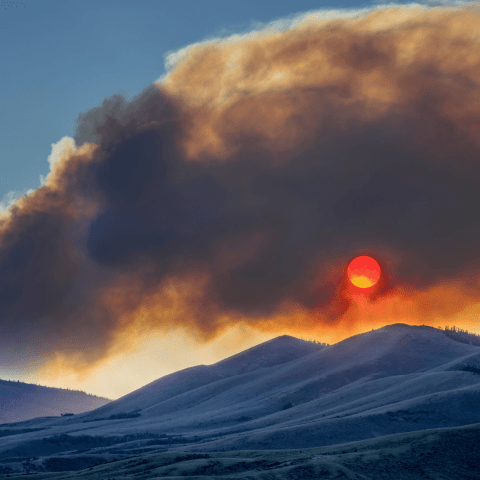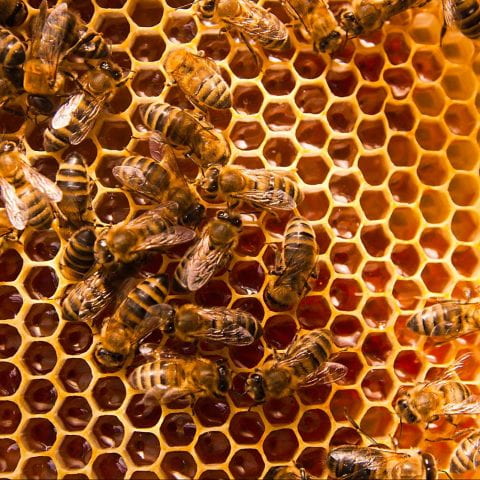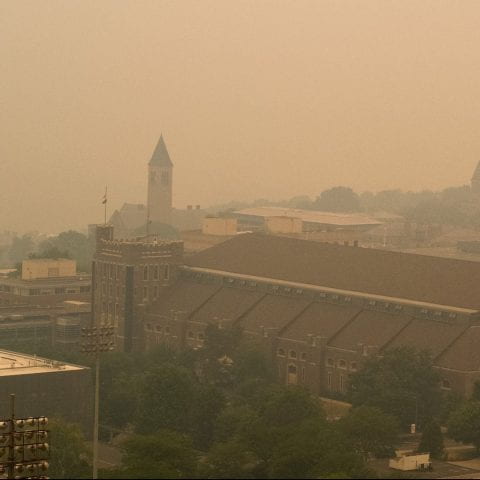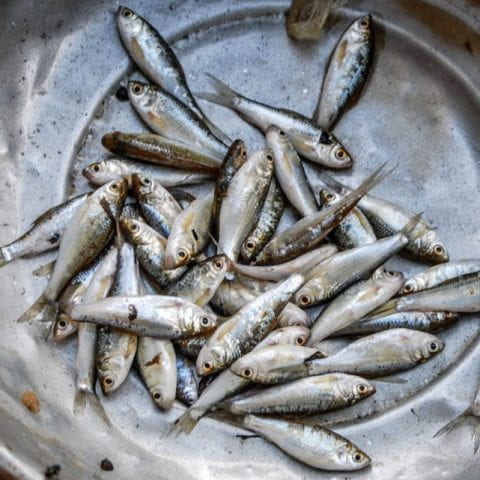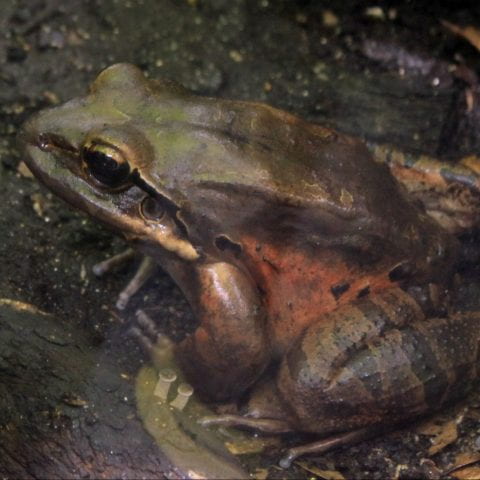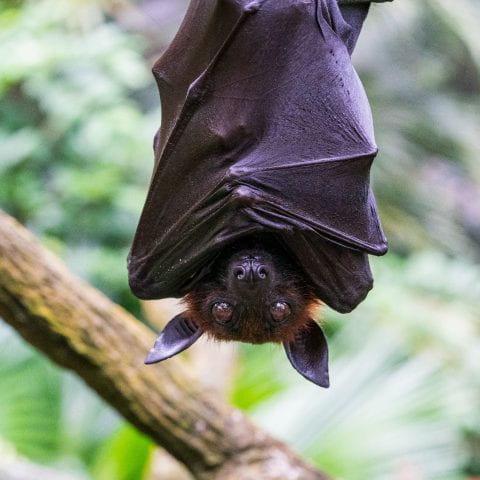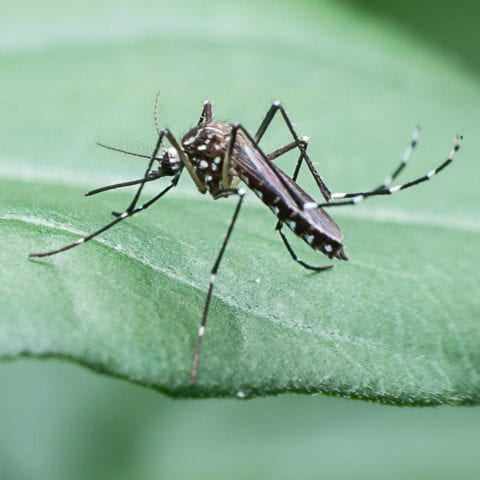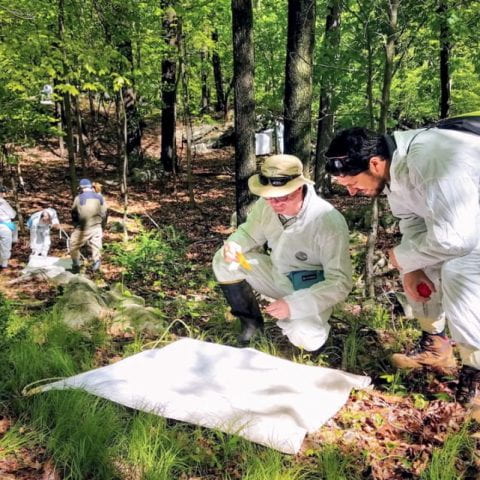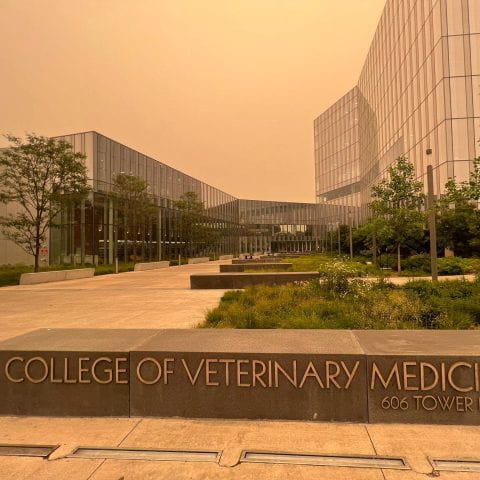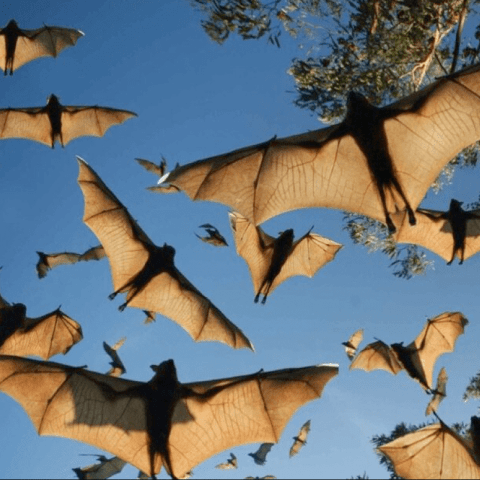Environment Climate & Health
From June to October of this year, Canadian wildfires spread to the United States’s midwest and northeast regions, decreasing air quality to unhealthy levels across New York State and Tompkins County In response to the deadly wildfires, Cornell researchers and...
An analysis of beeswax in managed honeybee hives in New York finds a wide variety of insecticide, herbicide and fungicide residues, exposing current and future generations of bees to long-term toxicity The study, “Pesticide Contamination of Beeswax from Managed...
When wildfires draped heavy smoke over much of the state this summer, nearly half of all New York counties lacked real-time information to determine air quality Now, a Cornell researcher is leading an effort to install air-quality sensors in 28 upstate counties where...
Across Cornell, 56 research projects have received federal funding to explore topics that will support New York’s food supply, economy and well-being They include teaching young people financial literacy skills, assessing the economic opportunities for dairy...
The mountain chicken frog was once so abundant in Dominica, with thousands found across the island, that it became a national delicacy, supposedly tasting of chicken Now, a new survey has found only 21 left in the Caribbean island nation The species’ population has...
The health and economic impacts from infectious disease emergence are substantial Pathogens that are transmitted, or spill over, between animals and people are the source of most emerging infectious diseases in humans Indeed, spillovers sparked five viral pandemics...
By this point, the evidence is clear: The Covid-19 pandemic can be traced back to a bat virus The same was true for the 2003 SARS coronavirus outbreak In such outbreaks, we are unlikely to be able to determine whether the spillover happened because someone ate or...
At this point in the year, we’re all quite familiar with the sounds of summer: the breeze through the trees, the birdsong, the chatter of children playing outside – and the persistent buzz of a...
To help respond to emerging and established vector-borne threats, the Northeast Regional Center for Excellence in Vector-Borne Diseases (NEVBD), led by Cornell, has received a five-year, $87 million award from the Centers for Disease Control and Prevention (CDC) to...
Dr Alistair Hayden, assistant professor of practice of Public and Ecosystem Health at the Cornell University College of Veterinary Medicine, discusses the impacts of Canada's wildfires in the Ithaca region and New York state, noting how current weather patterns are...
For each person killed by wildfire flames, around 100 will die inhaling the smoke it produces Despite these alarming figures, national spending on smoke management is 600 times less than the budget allocated to fire suppression, mainly due to lack of awareness of the...
Zoonotic spillover — when diseases pass between animals and humans — is a major cause of disease and the primary cause of recent pandemics, including COVID-19 Scientists and practitioners from four continents will gather for a webinar that explores how strategic...

